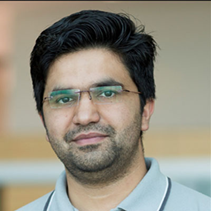Friday, March 1, 2024
Post Tags
Course Chapters
- 1Challenges of Non-Radioactive Multiphase Flow Metering and a Unique AI Based ApproachMedia Type: Video
Friday, March 1, 2024 | 09:00AM – 10:30AM CT Multiphase flow metering has revolutionized the well-testing operation by providing 24/7 access to production data which leads to production optimization and operational efficiency. Density based multiphase measurements are proven to provide the most accurate measurements owing to the fact that density of fluids are linearly related with the fractions whether it’s 2-phase (oil, water) fluid WC measurements using Coriolis or effective density measurements of 3-phase (oil, water, gas) using gamma ray source. Due to the Coriolis limitations in full multiphase operating envelope, gamma rays have been an essential component of MPFMs for more than 3 decades now. However, there are multiple associated downsides to this form of measurements. The foremost concern with the radioactive measurements is the associated health hazards which require strict safety rules, extensive certifications, and steep cost of maintenance through authorized safety officers. For these reasons, a lot of research and efforts have been made to develop non-radioactive MPFMs and some commercial products are available in the market as well. Most of the existing non-radioactive MPFMs use the principle of dielectric measurements which have a unique challenge of being a strong non-linear and non-monotonic function of produced water salinity and temperature. For these reasons, gas volume fraction (GVF) is instead measured using cross correlation which has its own downsides of being dependent on flow patterns and works in certain flow regimes only. For these reasons, existing non-radioactive MPFMs require frequent calibration. In this webinar, I will shed some light on a completely new approach to tackle the non-linear and non-monotonic behaviour of multiphase dielectric properties. This approach is backed by an AI-based digital twin model. The fully parametrized model outputs the non-linear and non-monotonic dielectric response of the multiphase mixture over full WC (0-100%), GVF (0-95%), salinity (0-250,000 ppm) and temperature (-40 to 125 C) ranges. This model has been validated through industrial grade flow loop measurements and the comparison will be briefly touched upon during this webinar. All content contained within this webinar is copyrighted by Dr. Muhammad Akram Karimi and its use and/or reproduction outside the portal requires express permission from Dr. Muhammad Akram Karimi. This webinar is Free to SPE Members. Webinar recordings will be available on-demand within 1 business day of the webinar completion. For those who attended the live webinar, your certificate will be available in your “Learner Profile” within 1 business day of the webinar completion
Credits
Earn credits by completing this course0.15 CEU credit1.5 PDH creditsSpeakers



